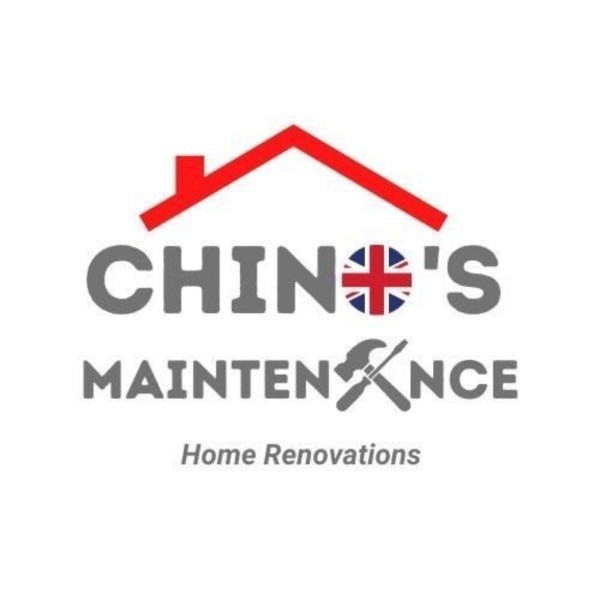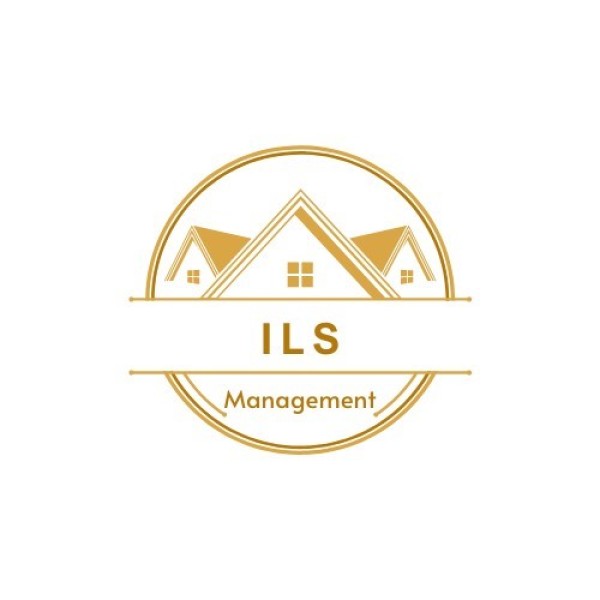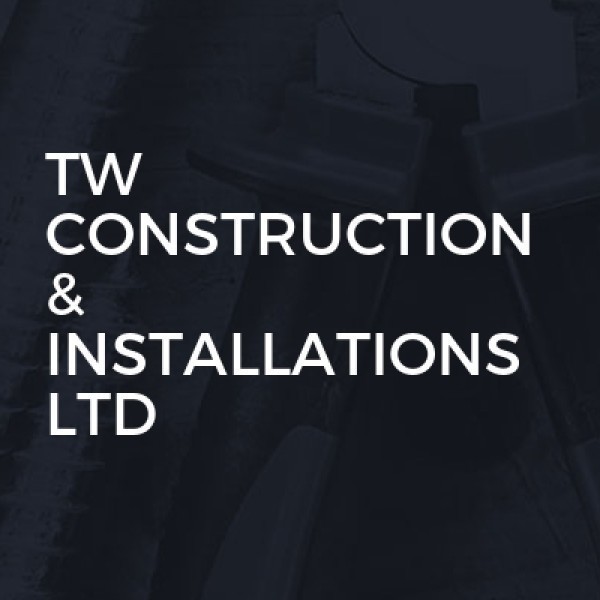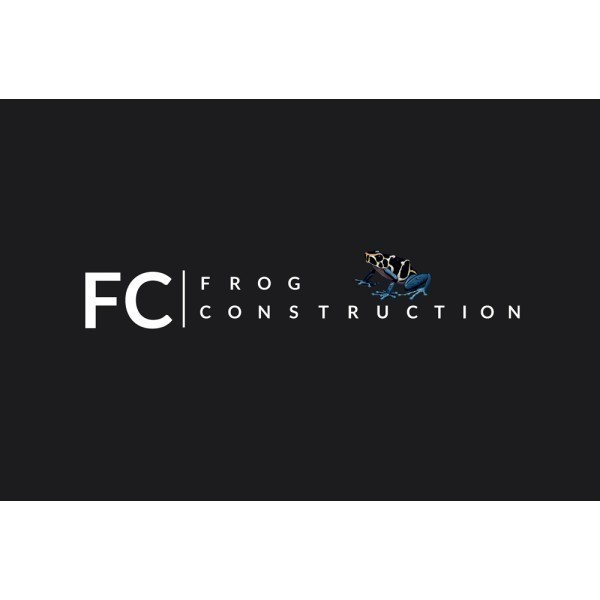Loft Conversions in Gatley
Welcome to JMW Building Services NW Ltd, your go-to experts for all building needs in Bolton and across Greater Manchester. As a leading... read more »
Welcome to TKO Kitchens & Construction LTD, your go-to experts for all things construction in Peel Green and Gr... read more »
Welcome to Edge Construction Services LTD, your premier choice for builders, extension builders, electricians, and property maintenance e... read more »
Welcome to Chinos Maintenance Ltd, your go-to experts for all building and refurbishment needs in Greater Manchester. Based in... read more »
AJBS: Your Trusted Tradespeople in Wigan and Greater Manchester
Welcome to AJBS, your go-to experts for all thin... read more »
Welcome to Dirossi Building Services, your premier choice for expert building solutions in Radcliffe and throughout Greater Manchester. A... read more »
Welcome to MH Developments NW LTD, your trusted partner for all building and renovation needs in Woodhouse Park and throughout Greater Ma... read more »
AK Electrics & Home Improvements is a trusted and reputable business based in Hadfield, proudly serving the Derbyshire a... read more »
Via Roofing Ltd: Your Trusted Tradespeople in Greater Manchester
Welcome to Via Roofing Ltd, a reputable Brunswi... read more »
Welcome to G4 Builders, your go-to experts for all your building needs in Newall Green and the Greater Manchester area. Our team of skill... read more »
Welcome to ILS Management Ltd, your trusted partner for all your building and renovation needs in New Moston and across Greater Mancheste... read more »
Tw Construction & Installations Ltd is a reputable and trusted business located in the heart of Denton, offering a compr... read more »
Welcome to Bond Developments, your trusted partner for all your construction needs in Backbower and the Greater Manchester area. As a pre... read more »
Econoloft Ltd: Premier Loft Conversions in Greater Manchester
Welcome to Econoloft Ltd, your trusted partner for... read more »
Welcome to Frog Construction Ltd, your go-to experts for all things construction in Spotland Bridge and the Greater M... read more »
Next Gen Construction Ltd: Your Premier Tradespeople in Greater Manchester
Welcome to Next Gen Construction Ltd,... read more »
Welcome to Diamond Ridge Mcr Ltd, your trusted builders and renovation experts in Whalley Range, Greater Manchester. We are proud to offe... read more »
Welcome to Complete Carpentry and Construction Group Ltd, your go-to experts for all building and carpentry needs in Offerton Green and t... read more »
ASR Building Service UK Limited is a premier construction and renovation company based in the vibrant community of
Welcome to Kerikeri Ltd, your premier choice for building and renovation services in Hazel Grove and the Greater Manchester area. As a le... read more »
Search Loft Conversions in places nearby
- Loft Conversions in Abram
- Loft Conversions in Altrincham
- Loft Conversions in Ashton-in-Makerfield
- Loft Conversions in Ashton-Under-Lyne
- Loft Conversions in Atherton
- Loft Conversions in Bolton
- Loft Conversions in Bramhall
- Loft Conversions in Buckley
- Loft Conversions in Bury
- Loft Conversions in Chadderton
- Loft Conversions in Cheadle
- Loft Conversions in Cheadle Hulme
- Loft Conversions in Denton
- Loft Conversions in Droylsden
- Loft Conversions in Dukinfield
- Loft Conversions in Eccles
- Loft Conversions in Failsworth
- Loft Conversions in Farnworth
- Loft Conversions in Golborne
- Loft Conversions in Hale
- Loft Conversions in Hazel Grove
- Loft Conversions in Heywood
- Loft Conversions in Hindley
- Loft Conversions in Horwich
- Loft Conversions in Hyde
- Loft Conversions in Ince in Makerfield
- Loft Conversions in Irlam
- Loft Conversions in Kearsley
- Loft Conversions in Leigh
- Loft Conversions in Littleborough
- Loft Conversions in Little Lever
- Loft Conversions in Manchester
- Loft Conversions in Marple
- Loft Conversions in Middleton
- Loft Conversions in Milnrow
- Loft Conversions in Mossley
- Loft Conversions in Oldham
- Loft Conversions in Pendlebury
- Loft Conversions in Prestwich
- Loft Conversions in Radcliffe
- Loft Conversions in Ramsbottom
- Loft Conversions in Rochdale
- Loft Conversions in Romiley
- Loft Conversions in Royton
- Loft Conversions in Sale
- Loft Conversions in Salford
- Loft Conversions in Shaw
- Loft Conversions in Stalybridge
- Loft Conversions in Standish
- Loft Conversions in Stockport
- Loft Conversions in Stretford
- Loft Conversions in Swinton
- Loft Conversions in Tyldesley
- Loft Conversions in Urmston
- Loft Conversions in Walkden
- Loft Conversions in Westhoughton
- Loft Conversions in Whitefield
- Loft Conversions in Wigan
- Loft Conversions in Worsley
Understanding Loft Conversions in Gatley
Loft conversions in Gatley have become increasingly popular as homeowners seek to maximise their living space without the hassle of moving. This charming suburb of Greater Manchester offers a unique blend of urban convenience and suburban tranquillity, making it an ideal location for expanding your home. In this article, we'll explore the ins and outs of loft conversions, providing you with the knowledge and confidence to embark on your own project.
The Benefits of Loft Conversions
Loft conversions offer a plethora of benefits that make them an attractive option for homeowners. Firstly, they provide additional living space, which can be used for various purposes such as a bedroom, home office, or playroom. This extra space can significantly enhance your quality of life by accommodating your growing family or lifestyle needs.
Moreover, loft conversions can increase the value of your property. In a competitive housing market like Gatley, having an extra room can make your home more appealing to potential buyers. Additionally, loft conversions are often more cost-effective than other types of home extensions, as they utilise existing space rather than requiring new foundations.
Types of Loft Conversions
There are several types of loft conversions to consider, each with its own advantages and suitability depending on your home's structure and your personal preferences.
- Velux Loft Conversion: This type involves installing Velux windows into the existing roofline, providing natural light without altering the roof structure. It's a cost-effective option, ideal for homes with sufficient headroom.
- Dormer Loft Conversion: A dormer conversion extends the existing roof to create additional floor space and headroom. It's versatile and can be adapted to various roof styles.
- Hip to Gable Loft Conversion: This conversion involves changing the sloping side of a roof to a vertical wall, creating more internal space. It's suitable for semi-detached or detached homes.
- Mansard Loft Conversion: A mansard conversion involves altering the entire roof structure to create a flat roof with steep sides. It's the most extensive and costly option but offers maximum space.
Planning Permission and Building Regulations
Before embarking on a loft conversion in Gatley, it's crucial to understand the planning permission and building regulations involved. Generally, loft conversions fall under permitted development rights, meaning you won't need planning permission if the work meets specific criteria. However, if your property is in a conservation area or the conversion involves significant structural changes, you may need to apply for planning permission.
Building regulations are mandatory for all loft conversions to ensure the safety and structural integrity of the work. These regulations cover aspects such as fire safety, insulation, and staircase design. It's advisable to consult with a professional architect or builder to ensure compliance with all necessary regulations.
Choosing the Right Professionals
Selecting the right professionals for your loft conversion is crucial to the success of the project. Start by researching local architects and builders with experience in loft conversions. Look for reviews and testimonials from previous clients to gauge their reliability and quality of work.
Once you've shortlisted potential candidates, arrange consultations to discuss your project in detail. During these meetings, assess their understanding of your vision, their ability to offer creative solutions, and their knowledge of local regulations. It's also important to obtain detailed quotes and timelines to avoid any surprises later on.
Designing Your Loft Space
The design of your loft conversion should reflect your personal style and meet your functional needs. Consider the purpose of the new space and how it will integrate with the rest of your home. For instance, if you're creating a bedroom, think about the layout, storage solutions, and lighting to ensure a comfortable and inviting atmosphere.
Incorporate elements that enhance the aesthetic appeal of the space, such as skylights for natural light, built-in shelving for storage, and stylish flooring. Collaborate with your architect or interior designer to create a cohesive design that complements your home's existing decor.
Cost Considerations
The cost of a loft conversion in Gatley can vary significantly depending on the type of conversion, the size of the space, and the quality of materials used. On average, a basic loft conversion can cost between £20,000 and £40,000, while more extensive projects can exceed £60,000.
It's essential to establish a realistic budget and factor in potential additional costs such as planning permission fees, structural alterations, and interior furnishings. Obtain multiple quotes from contractors to ensure you're getting a fair price, and always set aside a contingency fund for unexpected expenses.
Maximising Energy Efficiency
Energy efficiency is a key consideration in any loft conversion. Proper insulation is crucial to maintaining a comfortable temperature and reducing energy bills. Consider using high-quality insulation materials for the roof, walls, and floors to prevent heat loss.
Additionally, opt for energy-efficient windows and lighting solutions to further enhance the sustainability of your new space. Installing solar panels or a heat recovery ventilation system can also contribute to a more eco-friendly home.
Addressing Common Challenges
Loft conversions can present several challenges, but with careful planning and expert guidance, these can be effectively managed. One common issue is limited headroom, which can be addressed by choosing the right type of conversion or lowering the ceiling of the floor below.
Another challenge is ensuring adequate natural light and ventilation. This can be achieved by strategically placing windows and skylights, as well as incorporating ventilation systems to maintain air quality.
Legal and Safety Considerations
Ensuring the legal and safety aspects of your loft conversion are addressed is paramount. This includes adhering to building regulations, obtaining necessary permits, and ensuring the structural integrity of the conversion.
Fire safety is a critical component, requiring the installation of fire-resistant materials, smoke alarms, and an escape route. It's advisable to work with professionals who are well-versed in these regulations to ensure compliance and peace of mind.
Timeline for Completion
The timeline for completing a loft conversion can vary depending on the complexity of the project and any unforeseen challenges. On average, a loft conversion can take between 6 to 12 weeks from start to finish.
Factors that can influence the timeline include the type of conversion, the need for planning permission, and the availability of materials and labour. It's important to establish a realistic timeline with your contractor and maintain open communication throughout the project to ensure timely completion.
Maintaining Your New Loft Space
Once your loft conversion is complete, regular maintenance is essential to preserve its condition and functionality. This includes routine inspections of the roof and insulation, as well as addressing any signs of wear and tear promptly.
Keep the space clean and organised to maximise its usability, and consider updating the decor periodically to keep it fresh and inviting. Regular maintenance will not only enhance your enjoyment of the space but also protect your investment in the long term.
Case Studies of Successful Loft Conversions in Gatley
Exploring case studies of successful loft conversions in Gatley can provide valuable insights and inspiration for your own project. Many homeowners have transformed their lofts into stunning living spaces that enhance both their lifestyle and property value.
For instance, one family converted their loft into a spacious master bedroom with an en-suite bathroom, complete with skylights and custom-built storage solutions. Another homeowner created a bright and airy home office, taking advantage of the natural light and views over Gatley's picturesque surroundings.
Frequently Asked Questions
- Do I need planning permission for a loft conversion in Gatley? Most loft conversions fall under permitted development rights, but it's essential to check with your local council to confirm.
- How much does a loft conversion cost? Costs can vary, but a basic conversion typically ranges from £20,000 to £40,000.
- How long does a loft conversion take? The average timeline is 6 to 12 weeks, depending on the complexity of the project.
- What types of loft conversions are available? Common types include Velux, Dormer, Hip to Gable, and Mansard conversions.
- Can I convert my loft if I have limited headroom? Yes, there are solutions such as lowering the ceiling of the floor below or choosing a suitable conversion type.
- How can I ensure my loft conversion is energy efficient? Use high-quality insulation, energy-efficient windows, and consider renewable energy options.
Final Thoughts on Loft Conversions in Gatley
Loft conversions in Gatley offer an excellent opportunity to enhance your home's functionality and value. By understanding the different types of conversions, navigating planning permissions, and choosing the right professionals, you can create a beautiful and practical space that meets your needs. With careful planning and attention to detail, your loft conversion can become a cherished part of your home for years to come.
Send a message
























